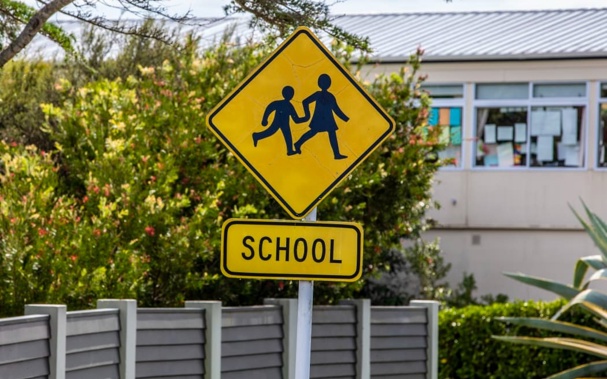
An Auckland high school principal says it is important not to "catastrophise" a new report documenting Kiwi students' deteriorating behaviour.
The Education Review Office report, released on Thursday, surveyed teachers and principals. It found half of teachers believed disruptive behaviour had gotten worse in the past two years, and a quarter of principals had seen students physically harm others, and damage or take property, at least every day.
Three-quarters of teachers said disruptive behaviour affected students' progress, and two-thirds said it was having a big impact on students' enjoyment of school.
Causes offered included the ongoing effects of the Covid-19 response, behavioural disorders (both known and undiagnosed), and "the growing gap between the haves and the have-nots".
While a range of factors were likely behind it, Albany Senior High School principal Claire Amos said the best approach was to figure out what disruptive children needed, rather than rushing to punish them.
"We need to be realistic about responding to what's in front of us, but to ensure that we don't inflate it, we don't catastrophise it - that we actually understand the evidence, and we understand what our young people have gone through and we prepare our teachers to respond the best we can," she told Checkpoint on Thursday.
Amos' school is for seniors only - years 11 through 13. She said the latest crop of year 11 students in particular "struggle with self-regulation in a more obvious way than we've seen in students coming through before".
"We are lucky that it doesn't seem to be presenting itself in violent behaviour, but we have maybe seen a bit of a spike in terms of how they treat the spaces, the way that they manage themselves in their classroom and the way that they engage with their learning."
She said they had "real interruptions through the intermediate schooling years", which were 2020 and 2021, when New Zealand - Auckland in particular - was in and out of lockdowns to curb the spread of Covid-19 before everyone had a chance to be vaccinated.
"That's when young people really start to learn that self-regulation, and you know, they have come through a global pandemic," Amos said.
"And again, I am not just sitting here and blaming the pandemic or blaming the lockdowns. It is what it is, it is what they have experienced. They are coming through - for some of them it means they are coming through with gaps in their numeracy or their literacy and their learning.
"If we don't meet them where they are at, in needing support with those skills and teach differently and look at what we are doing differently, of course, it's only going to get worse. We need to meet them where they are at. We need to have clear boundaries.
"We need to be upskilled in how to manage behaviour, but also we need to think about what we can be doing to ensure the learning is meeting them where they're at, and we're really engaging these young people as well."
Her school had actually seen fewer students stood down recently.
"We certainly seek to never suspend or expel, going down that route, the more serious route when they're pulled out of school. I am a believer that stand-downs, used sparingly, can be effective if a young person is engaged in something very serious."
But she suspected some schools might be going further - suspensions or expulsions - to attract more funding for troubled children.
"I worry that in some cases people are trying to move the problem on. I've got real concerns - the last thing I want to ever do is disengage a dislocated young person who is at risk, so we need to be really careful. For us, a stand-down is really serious. Even one day out of school is really serious in our books, because the best place these young people can be is actually engaged in school, engaged in learning.
"I also want these young people to know that we want them here and they belong in our school environment. So it's about saying that there is a line in the sand.
"Of course, if you engage in really dangerous behaviour that puts them at risk to themselves or others, you may have to remove them from the school setting. But you really want to use stand-downs as short, sharp opportunities to reset. and you want to ensure that when they come back into the school that you have a whānau reengagement meeting - because it's not just about the school, it's about everyone working together."
In response to the Education Review Office's report, Minister of Education Erica Stanford said improving student behaviour was "critical to lifting achievement and ensuring every student receives a world-class education".
She said the government was already banning cell phones in classrooms and looking how it could improve teacher training, and she would be following up with the ministry on the report's recommendations to see how they could be speedily progressed.
Take your Radio, Podcasts and Music with you







